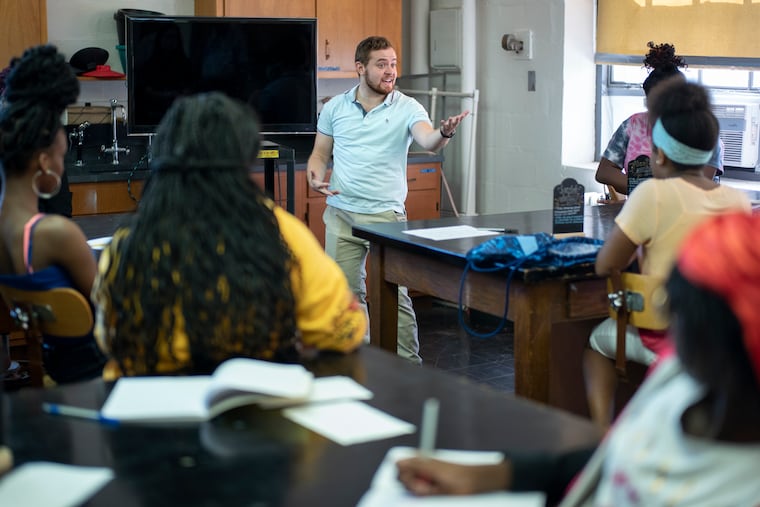Science teachers should pivot to teach about COVID-19 vaccine | Opinion
There's no better way to draw in students than addressing their urgent questions about COVID and vaccination.

Almost 27% of Americans are saying they will not get a COVID vaccine, and I am still teaching about mitosis in my high school biology classes.
All of us are all too familiar with the costs of COVID. If we are lucky and privileged, we have survived nearly a year of lost livelihoods, lost loved ones, and lost connection. The nation and the world’s leading public health experts point to widespread vaccination as the only way out of this hole. Lack of trust and understanding in the scientific process, and the propensity of social media to spread misinformation, has left many resistant to taking this step, which all of our lives depend on. But our nation’s largest infrastructure for science education hasn’t stepped in.
This year has been tough on public school teachers and students. My 10th graders at W.B. Saul High School in the School District of Philadelphia are serving as newly christened elementary school teaching assistants while they try to tune in to my classes. When they unmute themselves to respond to or ask a question, I often hear two or three other Zoom teacher voices at the same time in the background, while a little sibling adorably butts in. This is my fourth year teaching, but in many ways I feel as if it is my first. I find myself waking up early and going to bed late almost every day to create totally new materials conducive to online learning.
» READ MORE: A Black physician who understands COVID-19 vaccine skepticism explains why he’s getting the shots | Expert Opinion
Which is to say, I am tempted to go rogue, stop teaching mitosis, and create a whole new curriculum around COVID, the process of scientific research, and the science of vaccines and vaccine testing. But I am already at the end of my rope, clinging to the few materials I can reuse here and there, and I would prefer not to lose my job and health insurance in the middle of a pandemic.
What we need is leadership at the state level. States should suspend state testing and the rigid curricular requirements that come along with it. In place of business as usual, states should provide a revised set of standards for the remainder of this year’s high school biology curriculum, centering on providing our students with accurate information and critical thinking skills surrounding COVID vaccination.
In truth, this would not be such a huge departure from the current trend toward Next Generation Science Standards (NGSS), with their emphasis on scientific practices such as analyzing data and designing rigorous experiments. This curriculum must own up to the troubling history of scientific research exploiting Black, indigenous, and other oppressed populations. It should center these stories, and offer critical thinking skills around the process of science as a path forward for students to make informed choices.
State tests could be replaced with a final project of creating ads and social media posts setting the facts straight on vaccination. The Ad Council could allocate the $50 million it plans to spend on pro-vaccination ads as prize money for student projects. And let’s be real. My 10th graders would probably create catchier, more relevant content than traditional advertising workers will.
» READ MORE: Students aren’t showing up for virtual learning. ‘Are they well cared for? Are they safe?’
At the end of last school year, the School District recruited teachers like myself to split up the existing standards and create online-friendly curricular materials for our colleagues. States could support similar efforts to design a vaccine information curriculum, diverting funding from standardized testing toward hiring some teachers as part-time curriculum writers. We are well-positioned to do this work because we interact daily with our students and the online tools we have access to, so we know firsthand what works and what doesn’t. The overwhelmingly positive feedback we received on the lessons crafted in this way last school year is a testament to this.
Our students are struggling to engage with online schooling. There’s no better way to draw them in than addressing their urgent questions about COVID and vaccination, and better informing their and the broader public’s decisions in the process.
Amit Schwalb is a science teacher at W.B. Saul High School. He is a member of the Caucus of Working Educators within the Philadelphia Federation of Teachers.